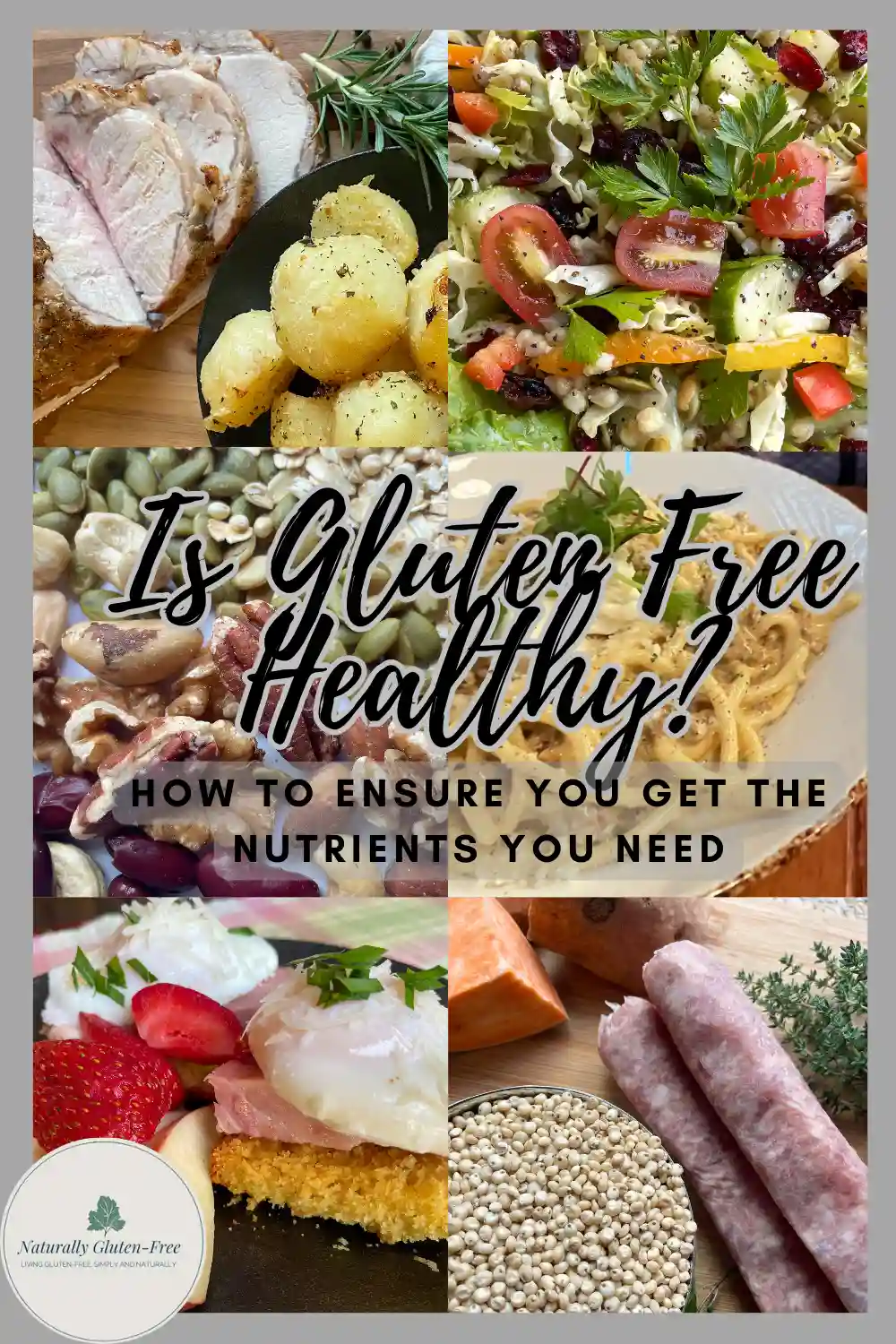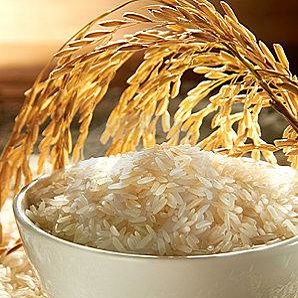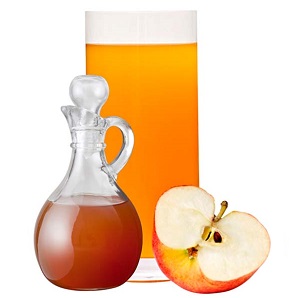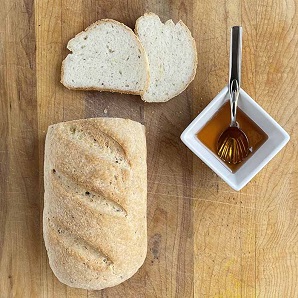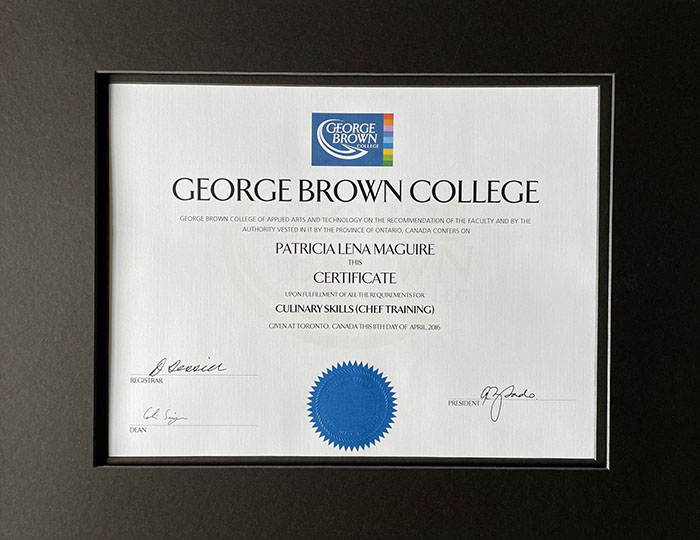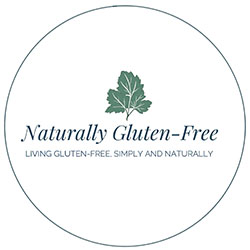- Home
- Gluten Free Food
- Gluten-Free Pasta
- Is Gluten Free Healthy
Is Gluten Free Healthy? How to Ensure You Get the Nutrients You Need
Is gluten free healthy? This question often swirls in the minds of those considering or embarking on a gluten free diet. It's common to be worried about missing out on essential nutrients. But trust me, you can have a balanced, nutritious diet even without wheat, rye or barley. Let's explore how.
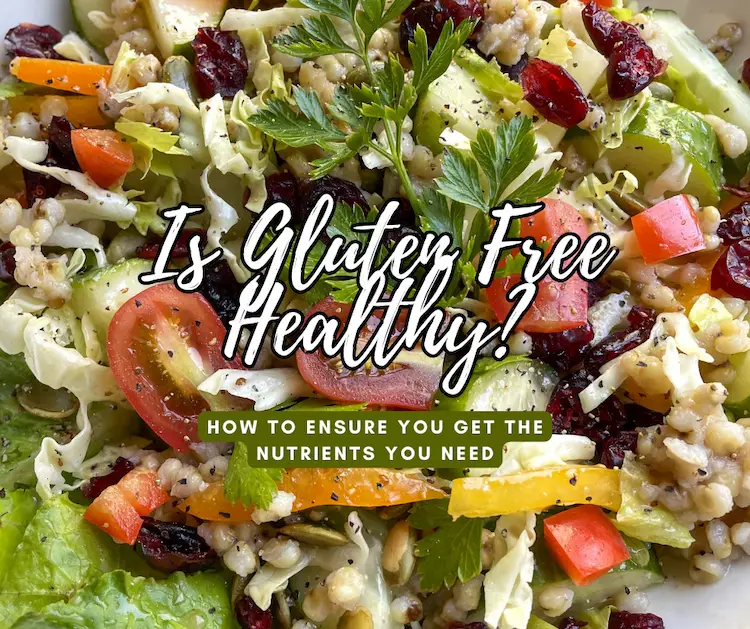
Nutritional Value of Gluten
First, let's clarify one important point: gluten is not an essential nutrient. It's a protein found in certain grains, but it's not the type of protein our bodies depend on for nutrients or energy. There’s no such thing as a gluten deficiency.1
Replacing Nutrients Found in Wheat, Rye and Barley
You might be thinking “but there are other important nutrients in gluten grains” and you’d be right. But, these can be easily replaced with other sources. For instance iron, commonly associated with wheat, is found in seeds, nuts, and leafy greens. Folate, another important nutrient, is abundant in vegetables, legumes, and citrus fruits. Variety is key.
Is Gluten Free Healthy if Your Are You Missing Out on Whole Grains?
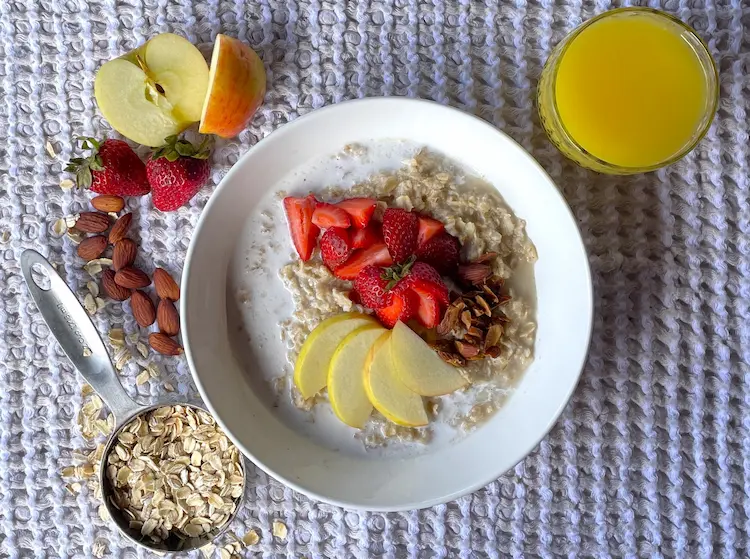
It is a myth that by going gluten free you are eliminating a whole food group – grains. There are plenty of gluten free whole grains you can enjoy, such as quinoa, brown rice, millet, buckwheat, sorghum and amaranth. These grains are packed with nutrients and are easy to fit into your gluten free meals.
When Is a Gluten Free Diet Bad for You?
A gluten free diet can be healthy or unhealthy depending on your choices. Eating lots of processed gluten free snacks, breads, and desserts isn't the healthiest option, but this is true of a regular diet too isn’t it? Processed foods are not as healthy as fresh fruits, vegetables and whole fresh cuts of meat. So the next time you're wondering "is gluten free healthy?" remember that focusing on naturally gluten free whole foods is nutritious whether you're gluten free or not.
The Healthiest Diet in the World
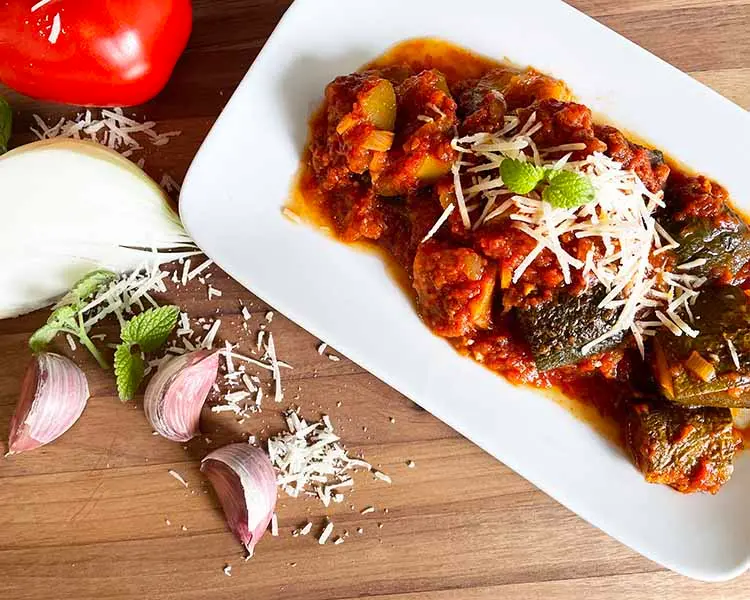
Think about the Mediterranean diet, which is known for its health benefits. It emphasizes whole foods—fruits, vegetables, nuts, seeds, lean proteins, and healthy fats. With small amounts of gluten free bread and pasta, you can customize the Mediterranean diet to meet your gluten free needs.
Nutrition Basics
Government health agencies worldwide provide guidelines for a healthy diet. These get incorporated into public education and dietary "food guides."
The USDA and Health Canada use a "My Plate" approach, dividing a dinner plate into sections: half for fruits and vegetables, a quarter for protein, and a quarter for grains, with dairy and healthy fats on the side.
Is this the right way? While it is how I was taught in my nutrition classes, there is controversy. Proponents of paleo or keto diets for example, advocate for fewer carbs and more fat and protein.
I'm not going to wade into the controversy. Instead I will focus on helping you find sources of the nutrients you need in your diet.
Is Gluten-Free Bread Healthy?
Here is a deep dive on gluten-free bread nutrition facts. You'll find out what to look for and what to avoid along with a nutritional comparison of gluten-free bread vs wheat bread.
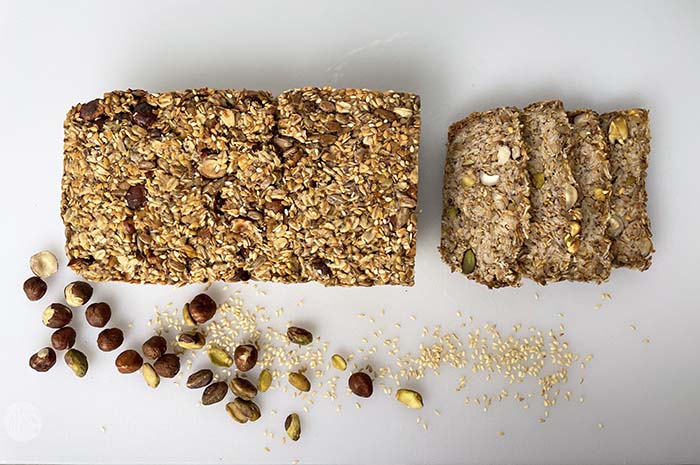
Getting Essential Macronutrients from Gluten Free Foods
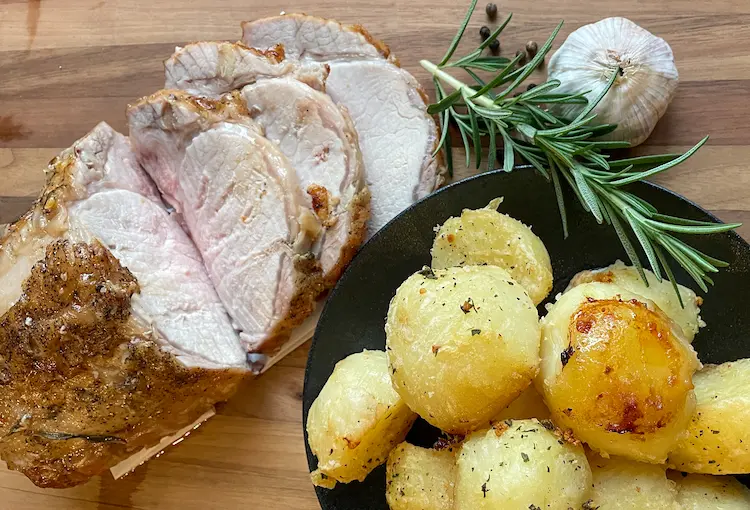
All foods contain some amount of the three macronutrients (macros): carbohydrates, protein and fat. Health Canada and the USDA recommend specific proportions of these for your daily dietary intake.
Recommendations vary according to age, gender and whether you're pregnant or lactating, but this is a good generalization:
Carbohydrates 45 to 65%, Protein 10 to 35%, Fat 20 to 35%2
Understanding the macro mix in common foods can help you develop a good balanced meal plan.
- Grains are high in carbohydrates and are good sources of protein.
- Meat, fish and poultry are great sources of protein but may be high in fat.
- Fruits and vegetables are mostly carbohydrate and also have some protein and fat.
- Nuts and seeds are good sources of protein and healthy fats and are lower in carbohydrates.
I think you can see where a good variety of healthy, naturally gluten free whole foods is the best way to get your macros. When you think of it this way, the "My Plate" approach starts to make sense.
Gluten Free Carbohydrates List
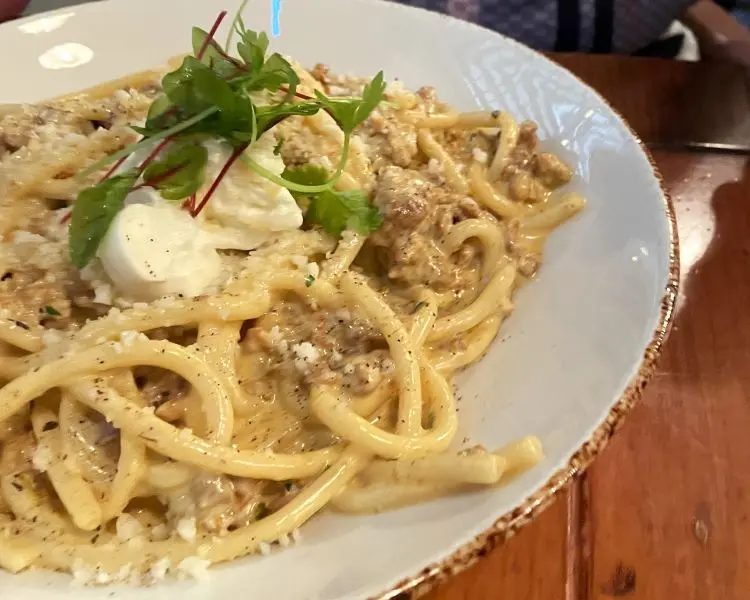
Carbohydrates (carbs) are your main source of energy and dietary fiber which helps to protect against disease and to keep you regular.3 Your best sources of carbohydrates are gluten free grains and starchy vegetables such as:
- gluten free pasta
- gluten free bread
- cooked rice, quinoa, corn, sorghum etc.
- potatoes or sweet potatoes
- butternut squash
- fruits like apples, pears, grapes or banana
- Gluten free baked goods are high in carbohydrates but also high in sugar.
Gluten Free Protein List
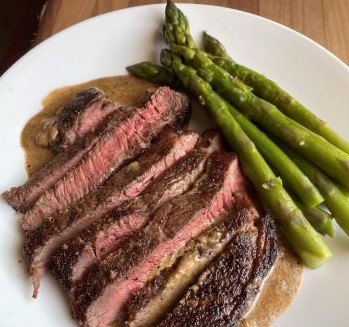
Protein builds muscle and bones as well as making essential enzymes and hormones.4 The most complete sources of gluten free protein are from whole fresh cuts of meat, fish and poultry such as:
- beef
- pork
- lamb
- chicken
- turkey
- duck
- seafood like mussels, lobster, clams, oysters
- fish like salmon, trout, cod, tilapia, halibut
Be careful of processed meats like ham, salami, hot dog wieners etc. They may not be gluten free.
Plant Sources of Gluten Free Protein
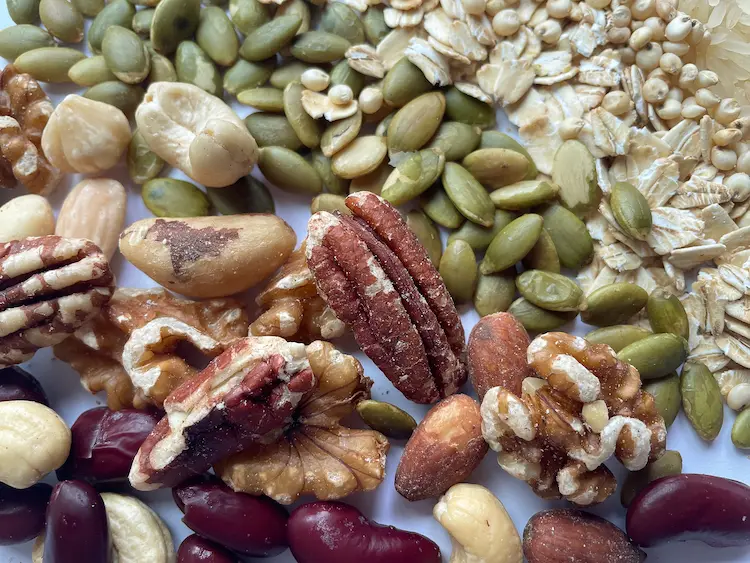
If you get your protein from plants, you need to combine sources to get all the essential amino acids. The rule of thumb is to pick two out of the following three categories:
- grains
- nuts and seeds
- beans and legumes
Many traditional dishes combine these to give us a complete vegetarian protein. For example:
- rice and beans or Jamaican rice and peas
- peanut butter and toast
- hummus (chickpeas and sesame paste)
- granola bars with grains and nuts
- oatmeal cookies with walnuts (in moderation)
Gluten Free Fats
All fats are gluten free, but be careful of cross contamination. Oil used to fry breaded foods is not suitable for your french fries. A shared butter dish may have bread crumbs making it unsafe for you.
Experts disagree on which fats are healthy, and since I’m not an expert, I’m not going to wade into this. I suggest a common sense approach which includes a variety of oils to capture the benefits and limit risks.
- Olive oil5 and avocado oil6 are unanimously considered healthy.
- Animal fats like butter, lard and fatty cuts of meat are controversial because of the links between saturated fats and heart disease. Recent studies have cast doubt on these links.7 I include these in my diet but in smaller amounts.
- Seed oils are controversial for two reasons: they are high in omega-6 fatty acids which can be over-consumed, and some scientists believe the high-heat processing of these oils may be harmful.8 Yet if you google “is corn oil healthy” or “is canola oil healthy” you’ll get very widely differing opinions.
What should you do?
Avoid processed foods and you’ll reduce the amount of seed oils in your diet. But if you like to cook with canola oil or sunflower oil, I wouldn’t place that at the top of your worry list.
Vitamins for Celiac Disease
Those of us with celiac disease often suffer inflammation or damage to the small intestine. This may hinder the absorption of certain nutrients like: iron, folic acid, B6, B12, vitamin D, copper and zinc9.
Pin for Later
Getting Vitamin Levels Tested
It’s a good idea to see your doctor regularly and get your vitamin levels tested. This way, you can pay extra attention to getting specific nutrients in your diet or supplementing if necessary.
Gluten Free Food Sources of Essential Vitamins and Minerals
If you’re concerned about a particular nutrient, it’s good to know which foods can deliver that for you.
Vitamins
|
Vitamin A B Complex – B1,2,3,5,6,9,12 Vitamin C Vitamin D Vitamin E Vitamin K |
liver, cod liver oil, beta carotene from carrots helps your body produce vitamin A dark meat, organ meats, beans pepper, broccoli, citrus fruits cod liver oil, canned sardines, fatty dairy products, sunshine nuts and seeds dark green leafy vegetables |
Minerals
|
Calcium Magnesium Iron Zinc Iodine Chromium Selenium Copper Manganese Potassium Sodium |
canned sardines, canned salmon with bones, dairy beans, nuts, seeds dark meat, dark legumes oysters, dark meat sea vegetables beef, cheese, whole grains, yeast Brazil nuts, dark fish beans, seeds Brown rice, beans beans, leafy greens, potatoes, apricots salt, sea vegetables |
Supplements for Celiac Disease
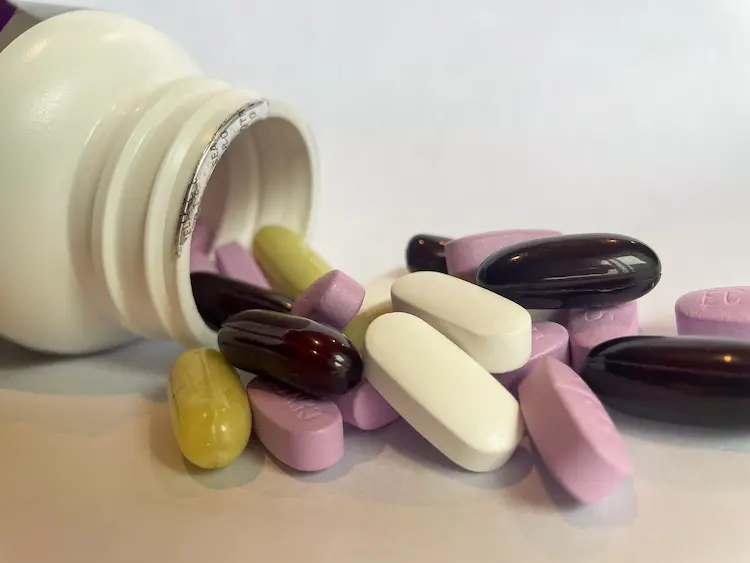
Supplements can play an important role in your healthy gluten free diet. A good quality multi-vitamin along with other essentials like iron, folate, B12, and vitamin D can help you meet your nutritional needs. Consult your doctor before starting any supplements and check the label to be sure they are gluten free.
Probiotics and Enzymes
Probiotics and enzymes may also support a healthy gluten free diet. Probiotics research is still new but there is promising evidence that they can help maintain a good balance of bacteria in your gut, which is essential for nutrient absorption and overall digestive health10.
Digestive enzymes can aid in breaking down food more efficiently, potentially improving nutrient uptake11.
Do You Need a Nutritionist or Dietitian to Manage Celiac Disease?
Not necessarily. With the key principles we’ve talked about here, you can build your own healthy gluten free diet. However, if you have specific deficiencies or issues, consulting with a nutritionist could be beneficial. They can provide personalized guidance tailored to your unique needs.
Will Non-Celiac Family Members Suffer on a Mostly Gluten Free Diet?
Many households opt for a completely or mostly gluten free kitchen to reduce the risk of cross contamination for the celiac family member. This may leave you wondering -Is gluten free healthy for the rest of the family? Do they miss out on nutrients if the whole family eats gluten free?
The short answer is no. Remember, gluten is not an essential nutrient and if you focus on a varied and balanced diet filled with whole foods, everyone can benefit.
Conclusion
I don’t know about you, but I find it reassuring to know that a gluten free diet doesn’t have to be restrictive or unhealthy. Armed with a little knowledge we can enjoy nutritious, balanced meals that meet all our dietary needs.
So, is gluten free healthy? Absolutely, as long as you make informed and thoughtful choices. Embrace the variety of naturally gluten free foods, stay mindful of nutrient intake, and remember to enjoy the journey towards a healthier you.
Sources:
1. Chemistry of wheat gluten proteins: Qualitative composition. (n.d.). https://onlinelibrary.wiley.com/doi/full/10.1002/cche.10572#:~:text=The amino acid composition of,of gluten as storage proteins.
2. Canada, H. (2023, December 18). Government of Canada. Canada.ca. https://www.canada.ca/en/health-canada/services/food-nutrition/healthy-eating/dietary-reference-intakes/tables/reference-values-macronutrients.html
3. Mayo Foundation for Medical Education and Research. (2022, March 22). Choose your Carbs wisely. Mayo Clinic. https://www.mayoclinic.org/healthy-lifestyle/nutrition-and-healthy-eating/in-depth/carbohydrates/art-20045705#:~:text=Carbohydrates%20are%20the%20body’s%20main,with%20the%20help%20of%20insulin.
4. WebMD. (n.d.). Protein: Why your body needs it. WebMD. https://www.webmd.com/diet/benefits-protein
5. UC Davis Health. (2024, April 10). Olive oil health benefits and why you should add it to your diet. good-food. https://health.ucdavis.edu/blog/good-food/olive-oils-health-benefits-and-why-you-should-add-it-to-your-diet/2024/04#:~:text=Olive%20oil%20has%20various%20health,the%20highest%20levels%20of%20MUFAs.
6. Jillian Kubala, R. (n.d.). Avocado oil is good for your heart-here’s the best way to eat it. Health. https://www.health.com/avocado-oil-benefits-7644388#:~:text=Avocado%20oil%20is%20a%20healthy,saut%C3%A9ing%2C%20frying%2C%20and%20baking
7. Teicholz, N. (2023, February 1). A short history of saturated fat: The making and unmaking of a scientific consensus. Current opinion in endocrinology, diabetes, and obesity. https://www.ncbi.nlm.nih.gov/pmc/articles/PMC9794145/
8. Cleveland Clinic. (2024, August 9). Seed oils: Are they truly toxic? https://health.clevelandclinic.org/seed-oils-are-they-actually-toxic
9. Dietary supplementation advice for celiac patients. Celiac Disease Foundation. (2020, March 25). https://celiac.org/2019/08/22/dietary-supplementation-advice-for-celiac-patients-on-a-long-term-gluten-free-diet/#:~:text=Micronutrient%20deficiencies%20(in%20particular%2C%20iron,psychiatric%20symptoms%2C%20and%20bone%20alterations
10. Burkhart, A. (2023, February 3). The microbiome and celiac disease: The role of Gut Bacteria. Amy Burkhart, MD, RD. https://theceliacmd.com/microbiome-celiac-disease-bacterial-connection/#:~:text=Probiotics%20And%20Celiac%20Disease&text=Studies%20show%20that%20probiotics%20can,results%20thus%20far%20are%20promising
11. Pietrangelo, A. (2024, January 22). A complete guide to digestive enzymes and how they work. Healthline. https://www.healthline.com/health/exocrine-pancreatic-insufficiency/the-role-of-digestive-enzymes-in-gi-disorders#:~:text=Digestive%20enzymes%20are%20essential%20to,food%20intolerances%2C%20or%20nutritional%20deficiencies
